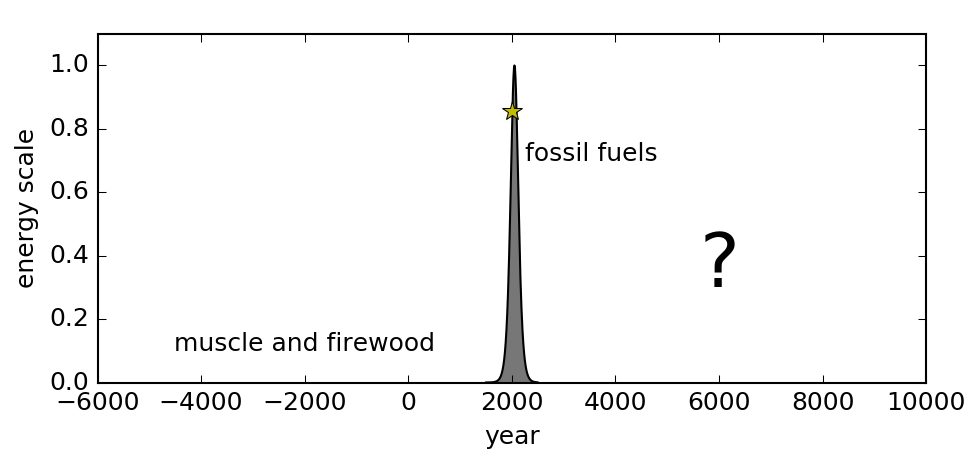Do the Math started out with a pair of posts about limits to growth. Galactic-Scale Energy pointed out the nonsense that results from continued growth in energy use, and Can Economic Growth Last? turned to the economic implications of stalled physical growth. This combination of topics later appeared in a dinner conversation between myself and an economist. The same pairing also evolved into chapters 1 and 2 of the textbook I wrote in 2021. And if that wasn’t enough, I published a paper in Nature Physics called Limits to Economic Growth based on the same theme. When I do podcast interviews, the hosts often want to step through this (powerful) logic.
Perhaps the result has me sounding like a broken record. It feels to me like the song “Free Bird” by Lynyrd Skynyrd. Fans will not allow the band to perform a concert without playing this classic hit. There’d be riots. I’ve had a lot to say following those two posts in 2011, and have especially taken a profound turn in the last few years. But the point remains central to our modern predicament, and until we all have it firmly planted in our heads that growth is a very temporary phase that must end, I guess I could do worse than repeating myself to new audiences—and to veterans holding up lighters.
In this post, I echo the bedrock question of whether economic growth can last with the question of whether modernity can last (see the previous post for definition and possible inevitability). Okay, nothing lasts. The whole universe is only 13.8 billion years old. The sun and the earth are only about 4.5 billion years old, and will be around in recognizable form for a comparable time into the future. Species typically hang around for millions of years. Homo sapiens is a few hundred-thousand years old. Depending on definitions, modernity has been around for at least a century or as long as 10,000 years—brief in either case, in the scheme of things. Nothing is forever, but how long might modernity last?
Whether modernity can last is perhaps a more important question than whether growth can last. The fact that growth can’t last is shocking enough for many. But it still allows mental space for maintaining our current way of life—just no longer growing. But is that even possible? I can’t be as confident in my answer as I am for growth, since the question of growth comes down to incontrovertible concepts and, well, math. Still, I strongly suspect the answer to this new question is “no” as well, and in this post I’ll expound on my misgivings.
[Note: I had another post in 2021 enumerating reasons to worry about collapse, which is a relevant but—I would say—less enlightened precursor to this piece. Since then, I have become aware of the important role of human supremacy, the materials difficulties associated with renewable energy, the crushing numbers on loss of biodiversity, and have released my anxious grasp on modernity—having better appreciated the more-than-human world and our role within the greater community of life.]
Views: 22940










